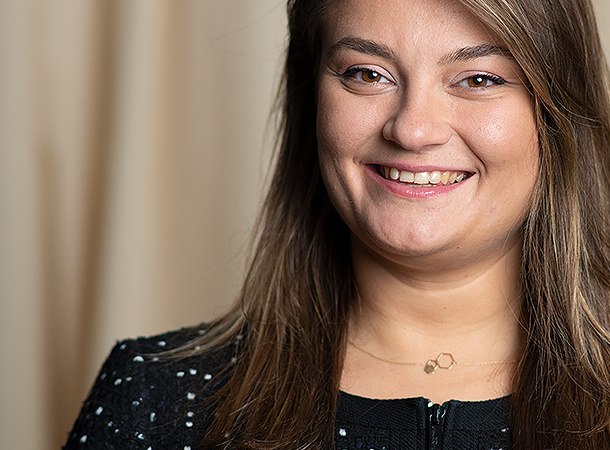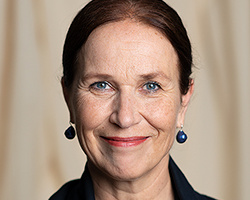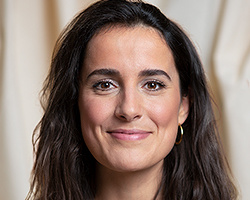A kind of movement emerged within DNB, in which we inspired each other.
Concerned
"It has always been my dream to work for the central bank and make a real impact on the economy. So when I was offered a job as a policy officer after my internship at DNB more than ten years ago, I was over the moon, but also a little worried: would I be able to perform well in a Dutch environment? I am from Romania and did not speak a word of Dutch at the time. Fortunately, my concern turned out to be completely unfounded. Not only was my induction day in English, but all meetings in my department were also held in English - and still are in my current role as Banking Supervision Team Lead. As a result, I immediately felt welcome at DNB as an international.
A movement
So I was all the more surprised after having returned from my secondment at the Federal Reserve Bank of New York in 2018 to learn that the induction day for all new employees was held in Dutch. Given that DNB continued to hire new international colleagues, that struck me as odd. Around that time, some colleagues and I started considering setting up a network for internationals at DNB. Not much later, DNB International came into being, and I became a board member. During that same period, various other networks were set up at DNB, and a kind of movement emerged in which we inspired each other to give a stronger voice to minorities.
People from different countries have different ways of working.
International community
As DNB International we undertake all kinds of activities, such as (online) drinks and an international cuisine evening. In addition, our network acts as the contact point and resource for expats seconded to DNB, and we have developed a mentoring programme for international recruits. Under this programme, a personal mentor introduces them to DNB, Dutch culture and the Dutch people.
Recently, we also discussed the book "The Culture Map" by Erin Meyer together. In it, Meyer explains that people from different countries have different ways of working and different working habits. The book provides a clear framework, not only about how individual behaviour is different, but also how it is culture-specific. At DNB, obviously we work closely with the ECB. That is why it is important to discuss these issues within such an international context.
English is on the increase
Any interested DNB employee can have themselves put on the mailing list and participate in our activities, even if they do not have an international background. Currently, we have just over 100 members, of whom about 80% are international and 20% Dutch.
Besides organising activities that connect Dutch and international DNB employees, we also want our voice to be heard within the organisation. For example, as a network we are represented on the Diversity Board, where we advocate a wider use of the English language. Not only do we want more English-language documentation to become available, we also want to provide Dutch language lessons. DNB is adapting at lightning speed, and we have already made great strides: a good deal of information and key internal communications are now in English, as are the basic training courses. So, as a network, we have a great amount of freedom, many resources and much support from DNB to pursue our priorities in various areas. That gives me a lot of energy."


